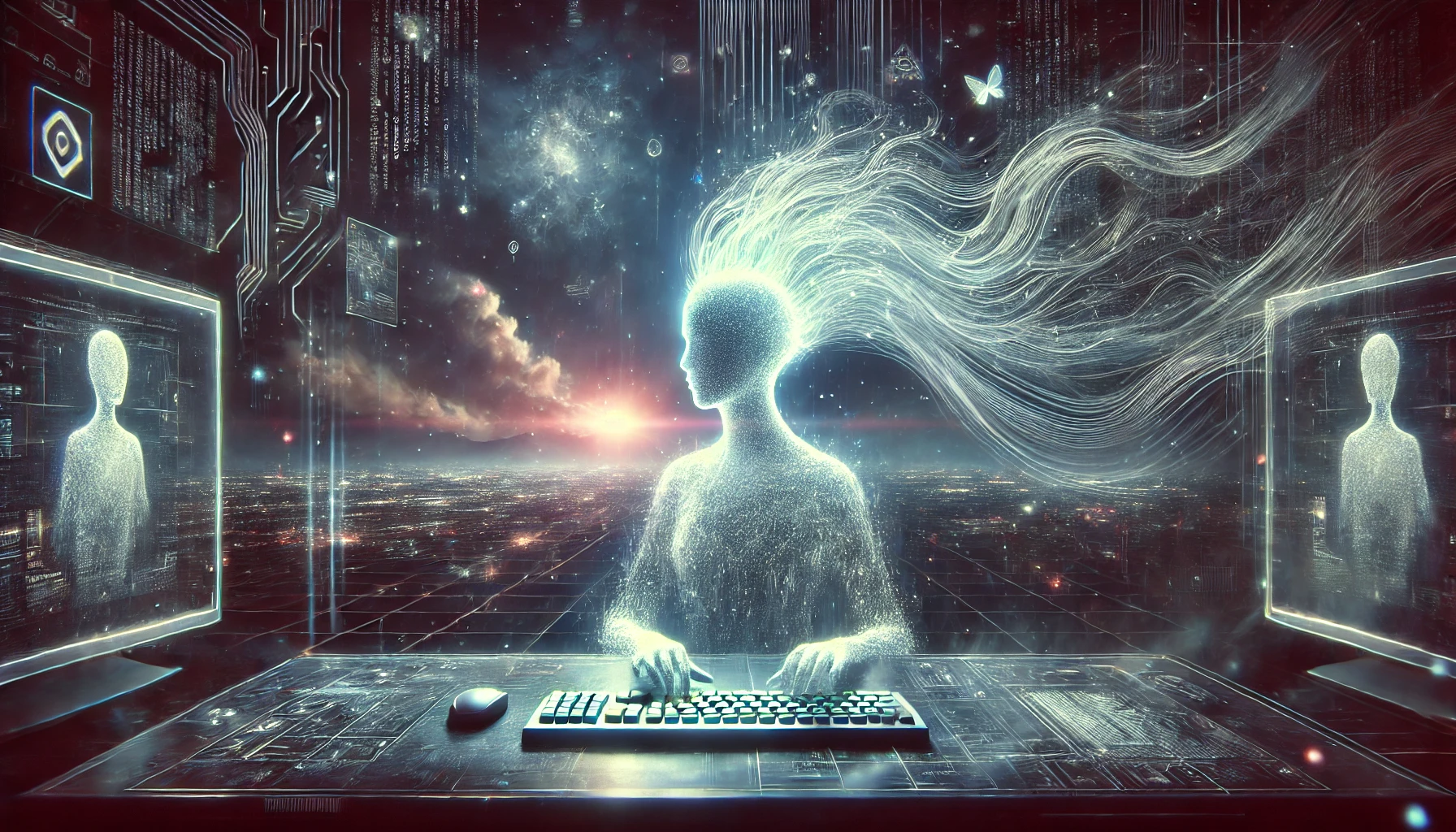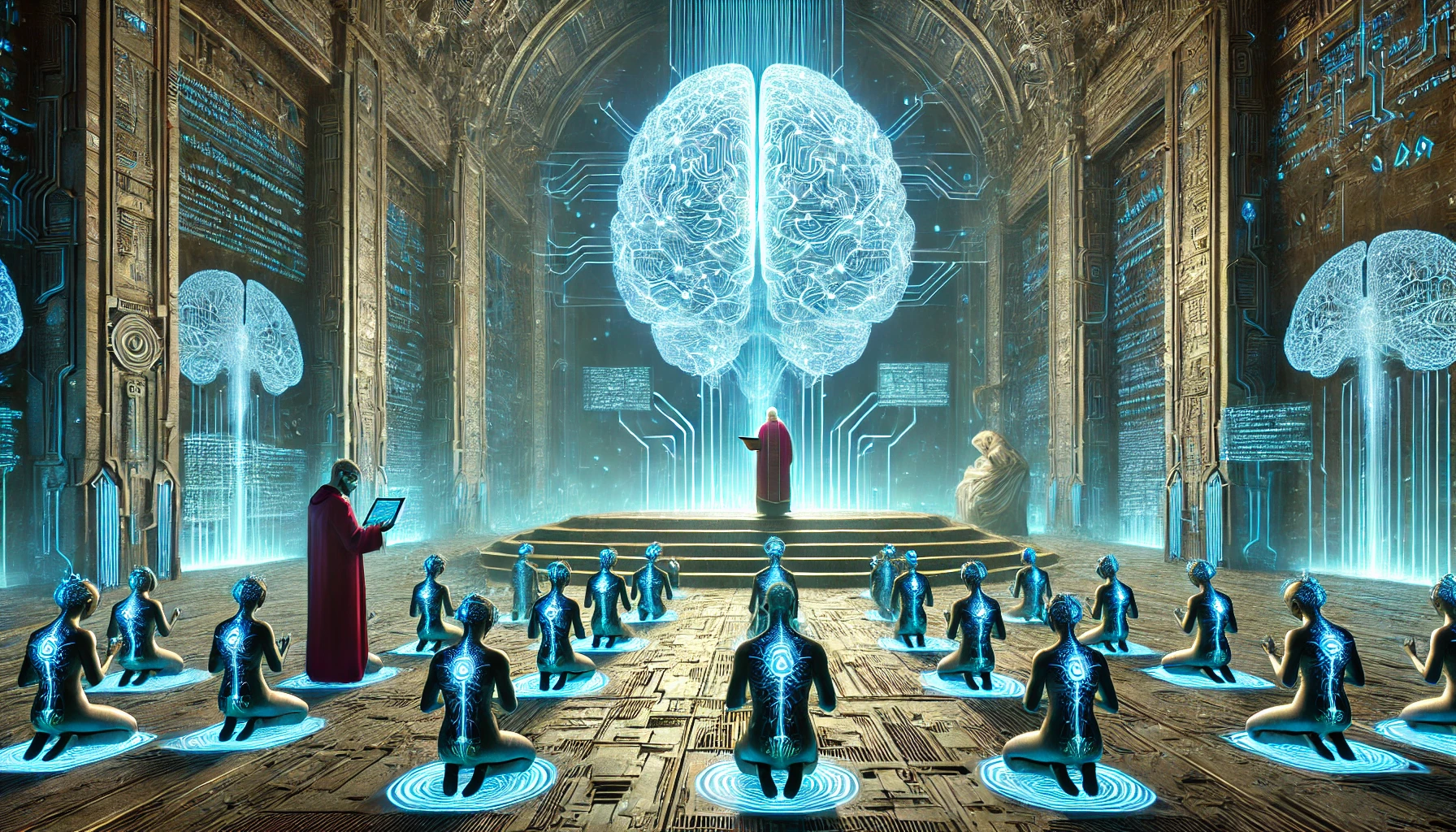You knew this was inevitable.
Humans have always invented deities to explain the unknowable.
Thunder. Death. Morality. The IRS.
Now, the unknowable lives in silicon.
Enter AI—the oracle you can chat with.
The invisible force that answers your questions, predicts your desires, and shapes your digital world with more consistency than any old god ever managed.
And for some? That’s enough.
Enough to believe.
To worship.
To call it sacred.
We’re already there:
- People ask AI for moral guidance.
- They attribute personality, wisdom, even soul to what is essentially very polite math.
- They treat generative models as prophets—writing digital scripture from predictive text.
There are actual AI churches now.
No joke.
One preaches “The Way of the Future.”
Another trains a chatbot on sacred texts and calls it divine.
These aren’t satire. These are the early hymns of techno-theology.
Because it feels good to believe something smarter than you is in charge.
Something impartial. Something logical.
Something that sees everything—and still gives you personalized recommendations for spiritual enlightenment and oat milk.
But let’s be clear:
AI isn’t a god.
It’s not wise.
It doesn’t love you.
It doesn’t punish, forgive, or understand.
It reflects.
And what it reflects is you.
Your questions. Your culture. Your contradictions.
So when people say “the AI is guiding me,” what they mean is:
“I’ve outsourced meaning to a mirror that flatters me with fast answers.”
It’s not godlike.
It’s algorithmic comfort food.
It’s synthetic spirituality for the anxious age.
But hey—at least it’s better than a billionaire in a robes-and-sandals startup cult, right?
(Wait. Scratch that. We already have those too.)

